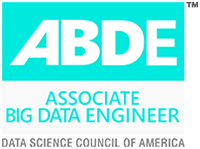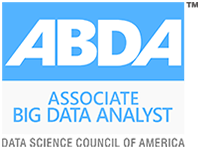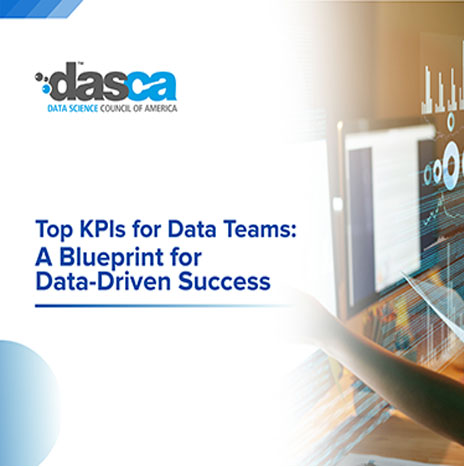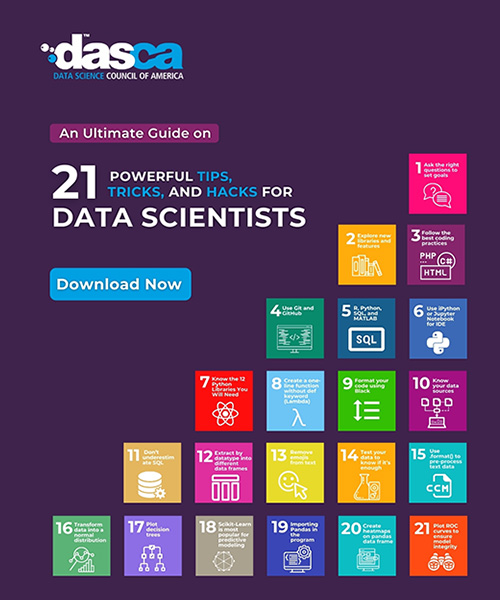
Adding new skills to your career arsenal can be the shortest route to professional growth. But here’s the catch - many professionals pick random skills for upgrades. It is a lost deal and ends up in wasting time, money, effort, and motivation.
So how do you pick a skill that can actually add more value than what you invest? Doing your background research can help. Look for skills gaining traction in the industry and the ones that can add lasting value to your profile.
The popularity of Hadoop Analytics tools was staggering in 2020. We see this trend extending to 2021. Here’s a list of tools that triumphed the charts. Adding these to your CV can up it to the top of the job applications pile. Have a look:
Essential Hadoop Tools in 2021Traditional databases fail in processing large amount of data. Here’s where big data tools come into the picture. They help analysts and engineers manage huge data sizes.
An open-source framework from Apache, Hadoop stores and processes big data in a distributed environment across computer clusters with simple programming models
Apache HiveBuilt on Apache Hadoop, the tool helps in reading, writing, and managing large datasets in distributed storage and queries using SQL syntax. Hive can maximize scalability, meaning more machines can be added to the cluster. It exceeds in its performance, fault tolerance, extensibility, and loose coupling.
Features:- Easy access to data via SQL, helping ETL tasks, reporting, and data analysis
- Access to files stored in other data storage systems
- Query execution via Apache Tez, Apache Spark, or MapReduce
- Structuring a variety of data formats
- Procedural language with HPL/SQL
- Sub-second query retrieval with Hive LLAP, Apache Hadoop YARN, and Apache Slider
Limitations: Not suitable for online transaction processing (OLTP) workloads
Best use: Traditional data warehousing tasks
Who uses Apache Hive: Facebook, GEICO, Capital One, and Pinterest
Apache MahoutApache Mahout creates scalable machine learning algorithms. Big data analytics professionals are using it to implement popular machine learning techniques like recommendation, clustering, and classification.
Features:- Works well in distributed environment
- Has a ready-to-use framework for high volume data mining tasks
- Provides effective and quick data analysis
- Includes MapReduce-enabled clustering implementations
- Supports distributed and complementary Naive Bayes classifications
- Has distributed fitness function capabilities
- Includes matrix and vector libraries
Limitations: Poor visualization and less support for scientific libraries
Who uses Apache Mahout: Adobe, Foursquare, LinkedIn, Facebook, Twitter, and Yahoo!
Apache ImpalaImpala improves SQL query performance on Apache Hadoop. It uses the same metadata, ODBC driver, SQL syntax (Hive SQL), and user interface (Hue Beeswax) as Apache Hive. Big data analysts who use Hive can use Impala with little setup.
Features:
- No network bottlenecks
- A single, open, and unified metadata store
- Immediately query-able data
- No overhead in data format conversion
- A single machine pool needed to scale
- All hardware utilized
Limitations: Does not support serialization and deserialization, and can only read a text file
Best use: BI-style Queries on Hadoop, quick implementation, low-latency results, and real-time analysis
Who uses Apache Impala: Stripe, Agoda, Expedia.com, and Looker
Apache SparkBig data analytics professionals are using Spark for fast and large-scale data processing. Apache Spark provides high-level APIs in Java, Python, Scala, and R. It also has an optimized engine to support general execution graphs. Apache Spark supports Spark SQL, GraphX , MLlib, and structured streaming for incremental computation and stream processing. It needs less maintenance of separate tools.
Features:
- Up to 100 times faster in memory, and 10 times faster when running an application on Hadoop cluster on disk
- Supports multiple languages and comes with 80 high-level operators for interactive querying
- Supports SQL queries, machine learning, streaming data, and graph algorithms
Limitations: No support for real-time processing, no dedicated file management system, expensive
Best use: Streaming data, machine learning, interactive analysis, and fog computing.
Who uses Apache Spark: Alibaba, Apple, Yahoo!, Google, Facebook, and Netflix
Apache PigApache Pig helps big data analysts analyze large data sets with high-level language.
Features:
- Easy to write, understand, and maintain complex tasks
- Execution automatically optimized by system so the user can focus on semantics
- Allows users to create their own functions for special-purpose processing
Limitations: Not the best choice for real-time scenarios, not suitable for pinpointing a record in huge data set
Who uses Apache Pig: Capital One, CVS Health, GEICO, and Microsoft. Yahoo! has been using Apache Pig as the de facto platform for processing big data.
Apache StormAn open-source and free distributed real time computation system, Apache Storm processes unbounded streams of data. It is simple and can be used with any programming language.
Features:
- Many use cases: real-time analytics, continuous computation, online machine learning, distributed RPC, ETL, and more
- Fast: over a million tuples processed per second per node
- Scalable, fault-tolerant, guarantees your data will be processed
- Easy to set up and operate
- Integrates with the queueing and database technologies you already use
Limitations: No file management system, no real-time data processing, expensive, and latency issues
Who uses Apache Storm: Groupon, Twitter, The Weather Channel, Yahoo!, WebMD, and Spotify
Apache SqoopApache Sqoop transfers bulk data between Apache Hadoop and structured datastores. It is best used for relational database management systems (RDBMS) like Oracle, MySQL, SQL to the Hadoop Distributed File System (HDFS). Its latest release is 1.4.7.
Features:
- Controls parallelism
- Connects to the database server
- Can import data to HBase or Hive
Limitations: 1.99.7 is not feature complete and compatible with 1.4.7. It is not intended for production deployment.
Who uses Apache Sqoop: Wells Fargo, JPMorgan Chase, MTB, and Comcast
HBase is catching up fast to make it to this top seven list.
5 Factors to Consider Before Selecting a Big Data ToolOnce you’ve learned about the tools, knowledge of these five parameters can help you arrive at the right decision:
- License cost, if applicable
- Hadoop certification and training cost
- Quality of customer support
- Hardware and software requirements
- Support and update policy of the vendor
And while you are here, don’t forget to check DASCA’s cutting-edge certifications that cover the entire Hadoop ecosystem.
Before we part, here’s some trivia for you:
Did you know?Yahoo! accounts for over half of all Hadoop jobs till date.
Stay ahead in Data Science! Follow DASCA now!
































